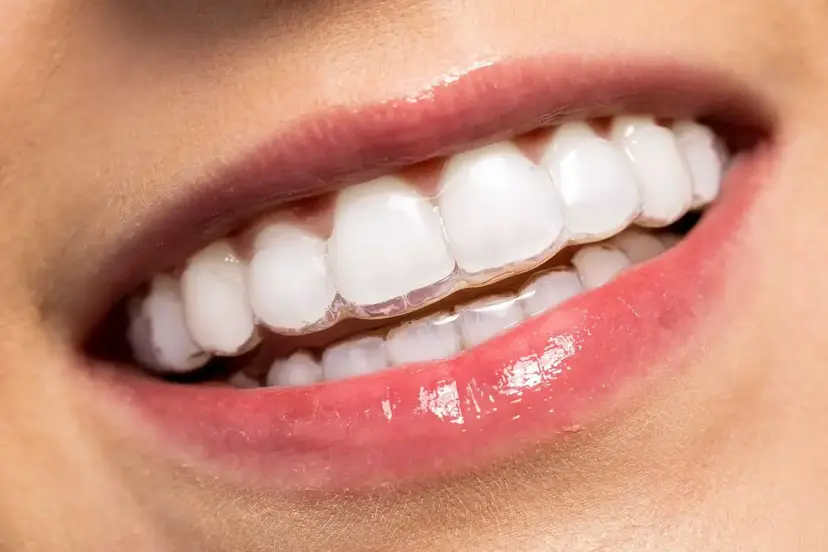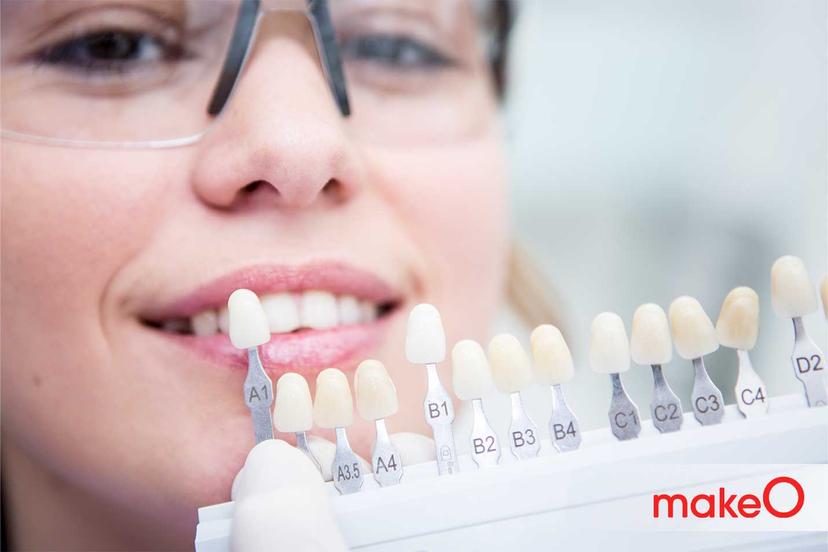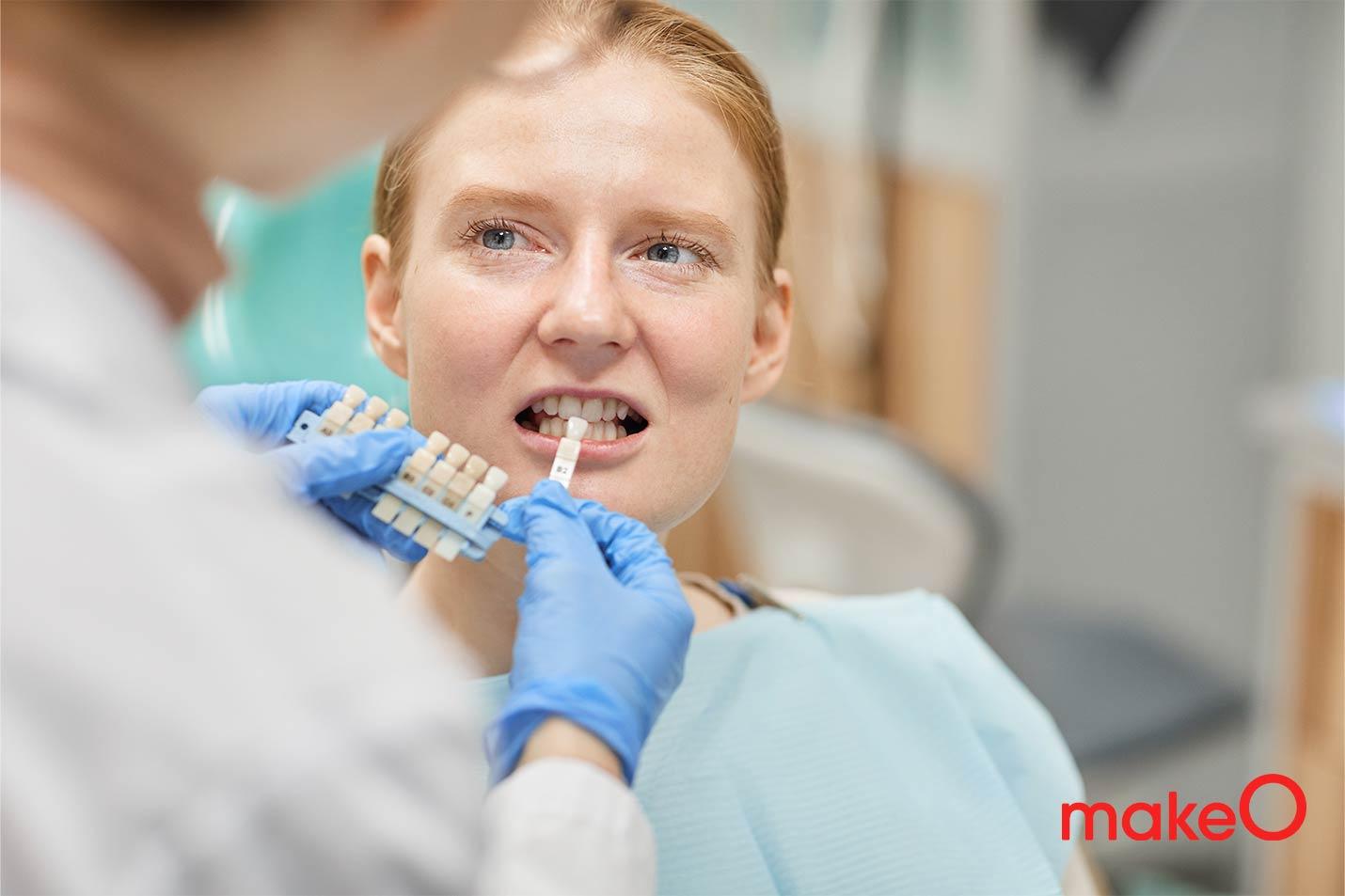MakeO blog
Ever heard of a dental crown and wondered what it is? Maybe you've heard it being referred to as a "tooth cap" or "dental cap". These protective shields help improve your oral health. Whether you're just curious or considering getting one, this blog will break down everything you need to know about dental crowns. So, let's dive in!
What is a dental crown?
A dental crown, often called a tooth crown or tooth cap, is essentially a protective cover placed over a damaged or decayed tooth. Think of it as a helmet for your tooth, giving it strength and improving its appearance.
When do you need a dental crown?
You might need a dental crown for various reasons. It could be to protect a weak tooth from breaking, restore a broken tooth, cover a tooth with a large filling, hold a dental bridge in place, or even cover a discoloured or misshapen tooth. In essence, it's like giving your tooth a makeover!
Dental Crown Types
1. Metal Crowns
These are made of metals like gold, palladium, nickel, or chromium. They're super strong, so they last long and can withstand biting and chewing forces. But the metallic colour might not be everyone's cup of tea.
2. Porcelain-fused-to-metal (PFM) Crowns
These crowns have a metal base with porcelain on top. They look more like natural teeth compared to metal crowns. However, sometimes the metal underneath can show through as a dark line. But, these crowns are as durable as their metal alternatives.
3. All-porcelain or All-ceramic Crowns
These are the go-to for those who want a natural look. They blend seamlessly with your natural teeth. They're a great choice for front teeth but might not be as strong as metal crowns. And if you have an allergy to a few metals, then this can be a good option.
4. Resin Crowns
These are less expensive than other crown types. However, they wear down over time and are more prone to fractures compared to porcelain-fused-to-metal crowns.
Benefits of Dental Crowns
- Restores the shape, alignment, and appearance of a tooth.
- Protects a weak tooth from breaking or holding together parts of a cracked tooth.
- Covers and supports a tooth with a large filling.
- Holds a dental bridge in place.
- Conceals misshapen or discoloured teeth.
Disadvantages of Dental Crowns
- Can be more expensive than other dental treatments.
- Potential for increased sensitivity or discomfort.
- Porcelain crowns can chip or break.
- The crown might become loose or fall out.
- A dark line might appear on porcelain-fused-to-metal crowns.
What happens during a dental crown procedure?
Getting a dental crown is simpler than you might think. Here are a few steps involved during a dental crown procedure:
- First, your dentist will prepare the tooth by removing the outer portion, including any tooth decay.
- Next, an impression is taken to provide an exact mould for the crown.
- You might get a temporary crown while waiting for the permanent one.
- Once ready, the permanent crown is cemented in place. Voila! Your tooth is now crowned and fabulous!
Conclusion
Dental crowns, or as some might call them, "tooth caps" or "dental caps", are a fantastic solution for many dental problems. They come in various types, each with its own pros and cons. If you're considering getting one, always consult with your dentist to choose the best fit for you.
Ideally, the best way to avoid succumbing to dental crowns is by maintaining your oral hygiene. Through products like toothsi electro and toothsi smart water flosser by makeO toothsi, you can enhance your oral care routine and take it up a notch. These products are powered by the latest US-FDA approved technology, built with comfort in mind and have the ability to fight bacteria and germs in your mouth to keep it safe from common oral issues like bad breath, plaque, gingivitis, tooth decay etc. So explore makeO toothsi products to boost your oral health today!
FAQs
What's the difference between a tooth cap and a dental crown?
There's no difference. "Tooth cap" is just an informal term for a dental crown.
How much does a tooth cap price vary?
The teeth cap price can vary based on the material used, the complexity of the procedure, and where you get it done in India. Always consult with your dentist for an accurate estimate.
Are there different teeth cap types?
Absolutely! From metal and porcelain-fused-to-metal to all-ceramic and resin, there are various tooth cap types to choose from.
How long do dental crowns last?
With proper care, dental crowns can last between 5 to 15 years. It largely depends on the wear and tear, your oral hygiene practices, and personal habits.
Is a dental cap the same as a filling?
No, they're different. While both address tooth decay, a dental cap or crown covers the entire tooth, whereas a filling just fills in the decayed part.
related categories
Related articles

Types of Braces: Removable vs Fixed Braces, Which is Right For You?

This Diwali, Smile Bright With makeO Teeth Whitening Kit

Dr. Pravin Shetty: Pioneer in Lingual Orthodontics & Innovative Smile Solutions
How do I Know I’m the Right Candidate for makeO toothsi Teeth Aligners?

